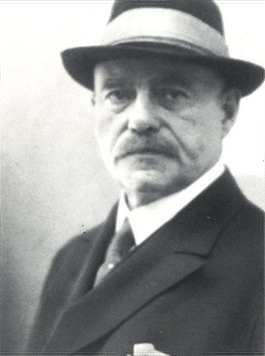
Hermann Sudermann was a German dramatist and novelist.
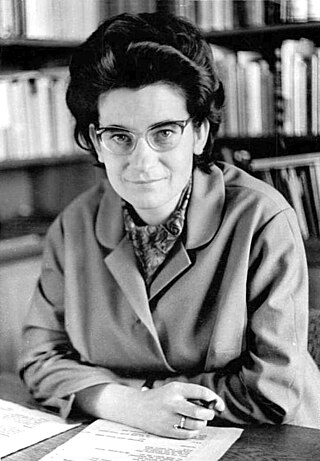
Christa Wolf was a German novelist and essayist. She is considered one of the most important writers to emerge from the former East Germany.
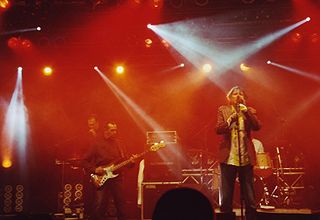
Fehlfarben is a Neue Deutsche Welle music band from Düsseldorf, Germany, that was formed in 1979. Its founding members were Peter Hein (vocals), former member of the German punk band Mittagspause, Thomas Schwebel, Michael Kemner, Frank Fenstermacher, Markus Oehlen and Uwe Bauer.

Emine Sevgi Özdamar is a writer, director, and actress of Turkish origin who resides in Germany and has resided there for many years. Özdamar's art is distinctive in that it is influenced by her life experiences, which straddle the countries of Germany and Turkey throughout times of turmoil in both. One of her most notable accomplishments is winning the 1991 Ingeborg Bachmann Prize.
Marieluise Fleißer was a German writer and playwright, most commonly associated with the aesthetic movement and style of Neue Sachlichkeit, or New Objectivity.

Irmtraud Morgner was a German writer, best known for works of magical realism concerned predominantly with the role of gender in East German society.
Leo Kofler was an Austrian-German Marxist sociologist. He ranks with the Marburg politicologist Wolfgang Abendroth and the Frankfurt school theoreticians Max Horkheimer and Theodor W. Adorno among the few well-known Marxist intellectuals in post-war Germany. However, almost nothing of his work was ever translated into English, and he is therefore little known in the English-speaking world. Kofler had his own, distinctive interpretation of Marxism, which connected sociology and history with aesthetics and anthropology.
East German literature is the literature produced in East Germany from the time of the Soviet occupation in 1945 until the end of the communist government in 1990. The literature of this period was heavily influenced by the concepts of socialist realism and controlled by the communist government. As a result, the literature of the German Democratic Republic was for decades dismissed as nothing more than "Boy meet Tractor literature", but its study is now considered a legitimate field. Because of its language, the literature is more accessible to western scholars and is considered to be one of the most reliable, if not the most reliable, sources about East Germany.
Paul Gratzik was a German dramatist and novelist. He came to wider public attention in 2011 as the subject of the documentary film Vaterlandsverräter by Annekatrin Hendel about his past as a Stasi informer.

Franz Fühmann was a German writer who lived and worked in East Germany. He wrote in a variety of formats, including short stories, essays, screenplays and children's books. Influenced by Nazism in his youth, he later embraced socialism.

Brigitte Kronauer was a German writer who lived in Hamburg. Her novels, written in the tradition of Jean Paul with artful writing and an ironic undertone, were awarded several prizes, including in 2005 the Georg Büchner Prize, in 2011 the Jean-Paul-Preis and in 2017 the Thomas Mann Prize.
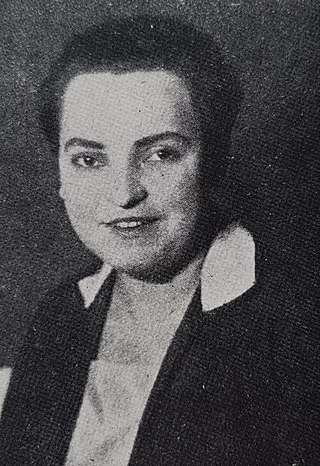
Selma "Selli" Engler was a leading activist of the lesbian movement in Berlin from about 1924 to 1931.

Helga Königsdorf was an East German author and physicist.

Brigitte Klump was a German author and campaigner. She was born into a relatively poor farming family, originally of Huguenot provenance. She grew up, between 1949 and 1957, in the German Democratic Republic where she trained as a journalist, before undertaking an internship at the Theater am Schiffbauerdamm in Berlin. Here she was mentored by Brecht's widow, the actress-director Helene Weigel. Klump escaped to West Berlin in 1957.
Aufbauliteratur is the name given to the literature produced in Eastern Germany between state foundation and construction of the Berlin Wall, that is between 1949 and 1961, by authors close to the state's ideology and congruent with the ruling party's political program. It was aimed at the intellectual construction of the Socialist state. The area is preceded by the less directed and only marginal literature produced post the Second World War, and followed by Ankunftsliteratur, the literature written to internalize a sense of arrival which was much less ideological but practical and realistic, still aligned with the SED.
Jutta Braband is a former German politician. In the German Democratic Republic she was a civil rights activist who after 1990 became a PDS member of the Germany parliament (Bundestag). Her parliamentary career ended in May 1992 after it had become known that fifteen years earlier she had worked for the Ministry for State Security (Stasi) as a registered informant .
Gertrud Fussenegger was an Austrian writer and a prolific author, especially of historical novels. Many commentators felt that her reputation never entirely escaped from the shadow cast by her enthusiasm, as a young woman, for National Socialism.

Silvia Bovenschen was a German feminist literary critic, author and essayist.
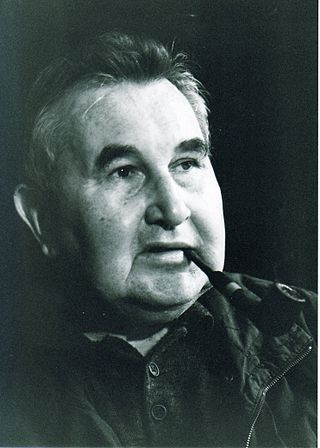
Eberhard Panitz was a German writer, screenwriter, literary editor and publicist. He wrote epic works, documentaries, audio plays and scripts for films and television. He was committed to socialist realism, and received several awards in the German Democratic Republic (GDR). After German reunification, he continued to write for leftist publishers.

Christian Maria Oskar Herwartz SJ, was a German Catholic priest. He was a member of the Society of Jesus, and was active as a worker-priest, author and blogger. After three years working in France, he lived from 1978 to 2016 with other Jesuits in a community he co-founded in Berlin that offered a place to stay for people in need. Herwartz is regarded as the founder of the Exerzitien auf der Straße movement, adapting the order's spiritual exercises to life among the masses. The community held regular peace prayers in Berlin until 2020.













